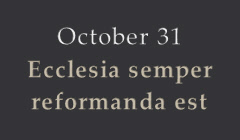Precious Knowledge - 1 Peter 1:10-12
 This sermon outline continues a series preached in 2002.
This sermon outline continues a series preached in 2002.
Precious Knowledge
Intro
In 1928 Alexander Fleming was doing research in the area of bacteriology. He’d been growing a bacterium called staphylococcus in a culture dish and found it had been contaminated by a mold of some kind. Taking a closer look, he discovered that the mold was killing the bacteria and did this consistently. Howard Florey and Earnst Chain learned how to extract the substance and use it as medication. It was eventually used to fight staph infections, gangrene, scarlet fever, meningitis, and more. We know it as penicillin. It was a great discovery, priceless knowledge.
Nowadays we take that discovery for granted. We don’t remember what life was like before antibiotics. It’s human nature to lose sight of the context of things we benefit from and, as a result, fail to fully appreciate them.
As Christians we even manage to get used to the gospel—especially the gospel in its totality—God’s great redemptive, gospel plan. We weren’t around in the days before this plan was known, and we slip into taking it for granted. But in the days of the apostles, the gospel plan as a complete whole was a great new discovery of sorts. It came by revelation rather than research. That makes the knowledge even more precious.
 This post continues a series examining the prophecy of Genesis 9:25-27 and the three sons of Noah. “
This post continues a series examining the prophecy of Genesis 9:25-27 and the three sons of Noah. “ Why should we celebrate October 31?
Why should we celebrate October 31?
Discussion